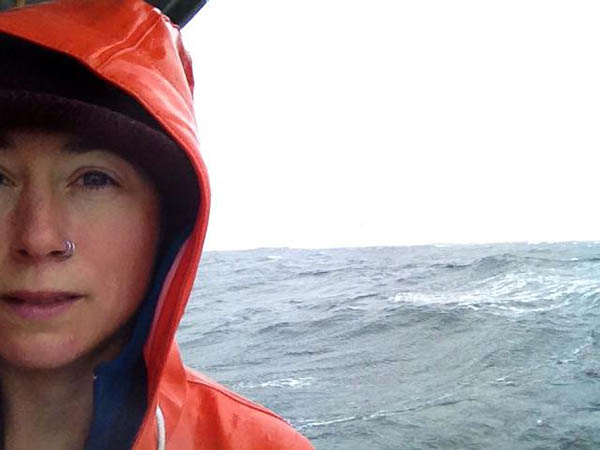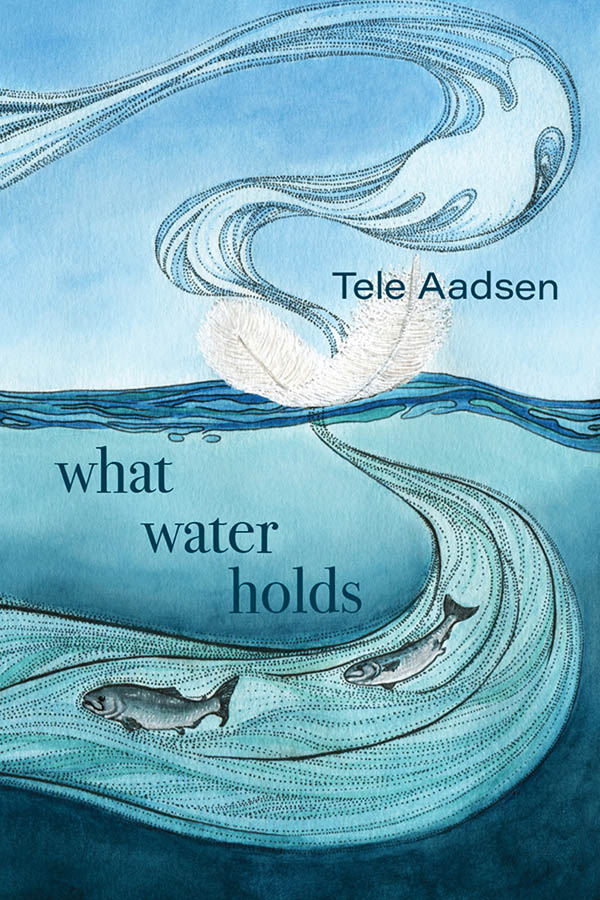Joel and I went to a movie the other night. We finally saw The Breach, an award-winning film I’ve been anxious to see since its 2014 release. Described as a love story for wild salmon, it’s a love story in all the truest ways – risk, betrayal, loss, resolve, hope. It took my breath away.
(You can watch The Breach yourself here. Please do. Please.)
After the lights came up, director Mark Titus joined commercial fishermen Melanie Brown and Marsh Skeele, Anchorage chef Rob Kinneen, and Sitka Mayor Mim McConnell for a discussion hosted by Sitka Conservation Society. They spoke of new threats: Canadian mines cleared to start work in the Transboundary headwaters of Southeast Alaska’s biggest salmon-producing rivers. Joel and I left the theater feeling equal parts terrified for the species we love and inspired to work for their protection. “We have to get more involved,” we vowed.
Which is why I’m disappointed today, upon the publication of an interview I did with Grist on what it means to be at home on the ocean. Friends shared the link with warm reviews. Journalist Eve Andrews has my full respect and appreciation. My disappointment is with myself. Given an opportunity to speak directly to the very audience whose help we need to protect Alaska’s wild salmon, people predisposed to care and act for environmental issues, I missed the boat.
Hearing this, Joel jumps to my defense. “Of course you feel that way now, since we just saw that movie. You weren’t thinking like that then; we were just trying to get out of town, go back out fishing.”
Go back. Go back to July 14th, the final half-hour in town, when I charged down a slippery dock, evading piles of dog shit while jockeying a cart piled high with two weeks’ worth of groceries packed in cardboard boxes quickly losing their integrity in a torrential sideways rain. My gait was off, my silhouette oddly misshapen, as I pitched the disintegrating boxes onto the Nerka’s deck, scrambled to return the borrowed truck, and rushed back to the boat, all with phone pinned between ear and shoulder. Joel had already fired up the engine and unplugged the shore power. I rifled discombobulated thoughts for a semi-articulate closing while yanking dock lines free, thanking Eve for our conversation as rain ran down the cabin roof, straight down the back of my neck.
(In retrospect, it’s remarkable that Eve was able to get anything useful from our interview. That the resulting article reads so smoothly is entirely thanks to her, not me.)
At the time the chaos struck me as funny. A ludicrous illustration of the barriers to thoughtful conversation, to anything requiring external consciousness, when the struggle to make a year’s livelihood in a matter of months consumes us. Now, realizing too late the opportunity I squandered, I’m regretful. They give us so much, salmon. I wish I had given them my voice.
But you can’t do anything about what’s done, Joel reminds me. “What can you do, moving forward?”
Which brings me here: another wet day in Sitka, this time tucked within the Nerka’s warmth, cup of lemon ginger tea at my side. The engines are off; no pressure to leave for another two days. Rain plip-plaps against the roof, a reassuring lullaby, and for the first time all summer, it’s just me and the page. Free to focus, free to gather my thoughts. Free to try again.
This time I introduce the fisherfolks I know, deeply conscientious women and men who embody values confusing for many outside our world, where killing isn’t cavalier and there’s no cognitive dissonance in feeling love for the lives we take.
I caution that saving wild salmon requires more than responsible fisheries management. Lacking equally focused efforts to guard their freshwater habitat, “sustainability” is superficial. An illusion.
I celebrate the work of Salmon Beyond Borders, uniting sports and commercial fishermen, tribal and First Nations members, business owners, community leaders – everyone invested in defending the Stikine, Taku, and Unuk Rivers from some of the largest mines the world has ever seen.
I push words around the lump in my throat, thinking of Petersburg writer Chelsea Tremblay’s essay, Survival is Insufficient. “Love is what makes a community more than just a group of people living in the same space. It’s the collective cobweb, invisible until you run into it.” Gathering strength from her words, I pause.
This time, asked what it’s like to be at home on the ocean, I look beyond my walls, beyond the windows of my own harried mid-season experience, and consider the silver bodies finning past. Home is knowing your neighbors. Looking out for them. Salmon begin their lives not on the ocean at all, but deep inland. Land-locked. In this way, being at home on the ocean is no different from being at home on land. Look carefully enough, far enough, salmon are our shared neighbors. They need all of us.



yes I can feel your pain’ having my lifestyle of fishing salmon slowly disappear.. and I feel dismayed as I see you and joel try to make a living in two months and afew days.. the love of fishing is not just konking them on the heads’ it is much more; love of being on the water associating with other fishermen’ living the good life harbour days on the beach’ day off no sweat … some time when you have time to think I will write a better note and tell how mary and I conquered this!! when it comes to helping salmon I have done my share or tried to I helped run a chinook hatchery on the marble river for many years’with no recompence but my own satisfaction ;;4 or 5 days a week for several months 25 miles from home; mary works at putting salmon farms on land helping Alexandra Morton with her work.. tom
Tele,
Don’t be so hard on yourself, listen to Joel. 🙂 Your words are so strong, how do I express that?? I am not a writer but I want you to know that I have been so moved by your writings.
I wish I could express myself better, SO frustrating!! You open my eyes Tele, you make me feel things on a very deep level. I can’t can’t just say “oh how hard that must be” , when I read your writings, I feel it on another level, and I love that! Please know that what you do is important and that you do have an impact. Don’t beat yourself up about one missed opportunity, celebrate the impact that you do have. It’s there, it’s real and it’s wonderful.
As a writer with earth under her fingernails, I very much empathize with the impetus behind your article. I hope it helps somewhat to know that I followed the Grist article link to your work and have since shared your words. I particularly appreciated reading the sentiment that salmon connect both land and sea, that we are all responsible for their wellbeing.